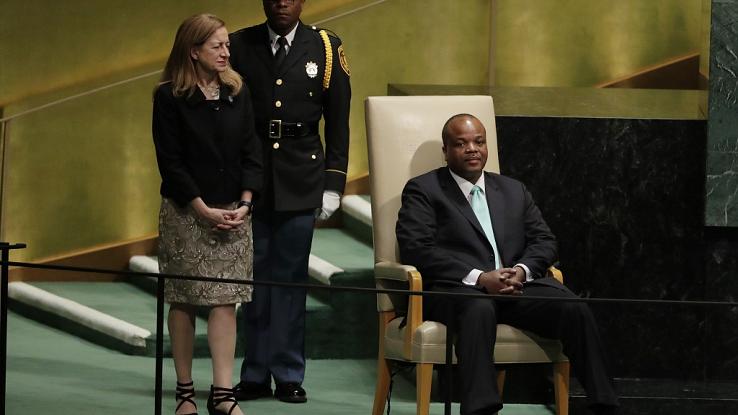
Eswatini imposes curfew amid rare protests
Published on June 30, 2021 at 11:34 AM by Face of Malawi
Eswatini, Africa’s last absolute monarchy, on Tuesday imposed a dusk-to-dawn curfew as soldiers were deployed to stop protests.
Protests are rare in Eswatini, a small landlocked state formerly called Swaziland.
Political parties are legally banned, but recent weeks have seen violent demonstrations in parts of the country, with the opposition reporting scores of people injured, many hospitalized.
“The events of the past few days have been quite alarming and upsetting,” acting Prime Minister Themba Masuku said in a statement.
“We have witnessed violence in several parts of the country perpetuated by an unruly crowd where people have been attacked, property destroyed,” he added.
He said “security forces are on the ground to maintain law and order”.
But the government cited rising coronavirus cases as it imposed a 6 pm to 5 am curfew.
Witnesses in the two capitals Manzini and Mbabane reported seeing soldiers patrolling the streets where protesters have been burning tyres and stoning cars.
A Manzini resident told AFP she and colleagues were holed up in the restaurant where they worked and were unable to return home.
“Helicopters are extinguishing the fires lit on the roads,” she said, asking not be named.
People had been looting a furniture store and on Monday some shops were burned down, she said.
Shops were ransacked and torched overnight in Matsapha, an industrial hub on the western edge of Manzini, according to several sources.
“The military is on the streets,” Lucky Lukhele, spokesman for the pro-democracy grouping Swaziland Solidarity Network, told AFP.
“Yesterday was the worst night ever, where a young man was shot point-blank by the army, and some are in hospital as we speak,” Lukhele charged.
‘Tipping point’
Wandile Dludlu, secretary-general of the People’s United Democratic Movement, said “(King) Mswati unleashed armed soldiers and police on unarmed civilians yesterday.”
More than 250 protesters have been injured with gun wounds, broken bones, and shock, he said.
Masuku had earlier dismissed media reports that King Mswati III had fled as “false”.
“We are working around the clock to ensure that the situation is normalized,” he said, adding that nothing could be achieved “in an environment of anarchy”.
The government last week banned protests, with national police commissioner William Dlamini warning that officers would be “zero-tolerant” of breaches of the ban.
The kingdom has traditionally stifled dissent and demonstrations, including by pro-democracy trade unions.
Eswatini is “at a crucial point in the long struggle to get rid of the autocratic monarchy”, the country’s communist party said in a statement.
“The people… have had enough. This is the tipping point.”
With unfettered political power over his 1.3 million people and ruling by decree, the king is Africa’s only absolute monarch and one of the few remaining in the world.
Crowned in 1986 when he was just 18, the king has come under fire for his lavish spending while most inhabitants live below the poverty line.
AFP


